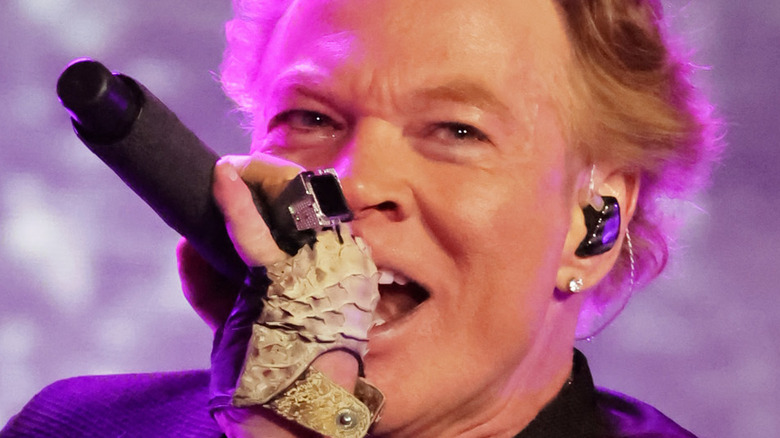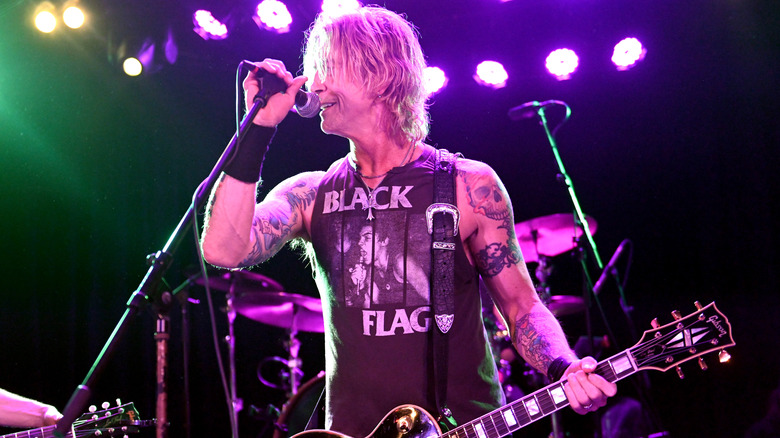The Meaning Behind Paradise City By Guns N' Roses
Rock music is a curious genre. To "rock" can often be to create a wall of magnificent sound, a riff-heavy, internal-organ-rumbling display of mighty bass and other instruments. As any rock fan will know, the music can be loud with a capital L. According to Guinness World Records, in fact, Col Hatchman of Australian band Dirty Skanks was declared the loudest drummer on the planet in 2006. Hatchman hit an astonishing 137.2 decibels (A-weighted) during a gig in New South Wales in August of that year.
Rock is often about pure spectacle, and some of the legends of the genre have centered elaborate shows around that fact. From Alice Cooper to Queen, from the Rolling Stones to Kiss, they have all put on remarkable gigs that are about so much more than just the songs alone.
Guns N' Roses, needless to say, are right up there with some of the icons of rock. They can belt out some glorious ear-splitting instrument work, but they can also surprise with heartfelt, emotional, and poignant lyrics. Their classic "Paradise City" is just one example of this.
The success of Paradise City
"Paradise City," as the Guns N' Roses faithful will know, featured on the band's first album, the formidable "Appetite For Destruction." As All Music reports, the song was released as a single in 1989, two years after the debut album's launch, and it remains a classic. This was a wonderful time for the genre and the band themselves, and the song was a great success.
According to the outlet, the song's daunting length (it's nearly seven minutes long) "didn't feel meandering or excessive, which speaks to the band's compositional tightness and their strengths as an instrumental unit." Further, it was a hit despite not being "a sentimental power ballad," during an age of wall-to-wall power ballads.
"Paradise City" isn't a soft, gentle ballad, but it seems that it's wonderfully nostalgic and meaningful for the members of the band. As it happens, the meaning behind the song revolves around memories that are both joyful and painful in equal measure.
A big, busy city
Where is this supposed paradise of a city? According to Axl Rose, it isn't any one literal place, but rather a blend of positive and negative traits. In 1988, the singer discussed the song's origins with Hit Parader magazine. He explained (via Ultimate Classic Rock), "the chorus is like being back in the Midwest or somewhere." This exultant description of green grass (and, by extension, perhaps a quieter and more rural life), according to the outlet, reflects some of the band members' lives in Indiana, before the hustle and bustle of Los Angeles. By contrast, Rose went on, "The verses are more about being in the jungle."
This jungle, of course, is referenced in another hit from "Appetite For Destruction": the legendary "Welcome To The Jungle." According to American Songwriter, this song was inspired by a threat Rose received from a New York stranger he happened to pass by while new to the area. He was reportedly told, "You know where you are? You're in the jungle baby. You're gonna die." Several of the young men, new to Los Angeles, would have been nursing memories of quieter upbringings and been rather intimidated by fame and big city life. All of these emotions and themes, it seems, are represented within "Paradise City." Perhaps that's why the song's so long.


